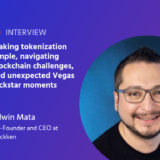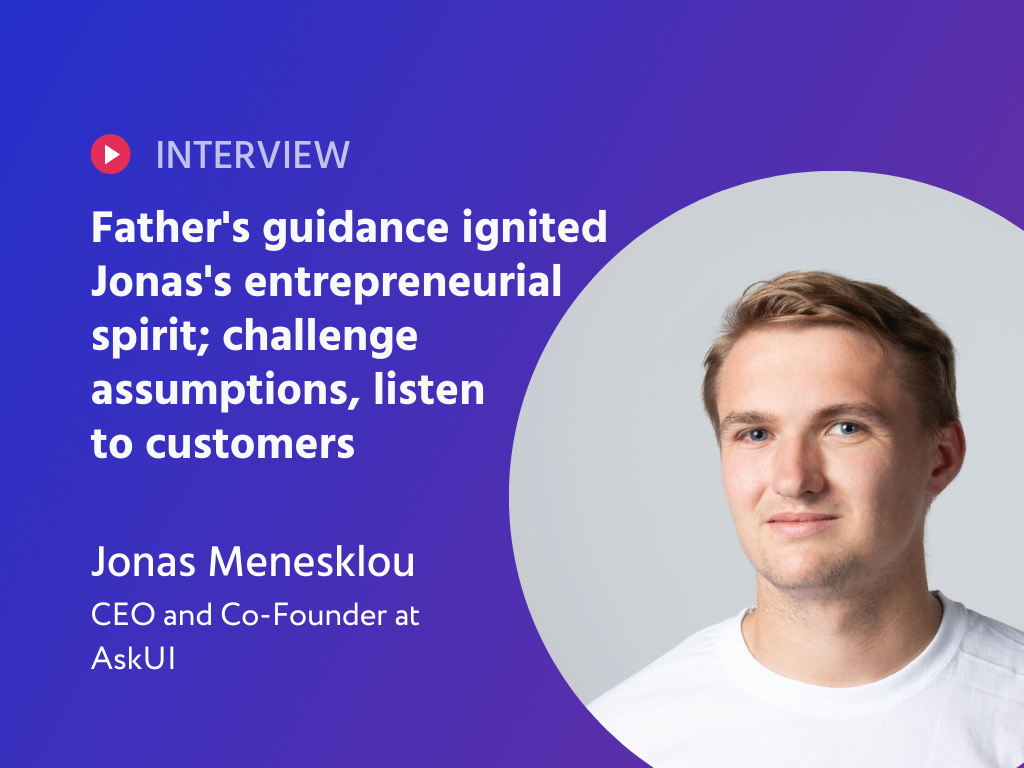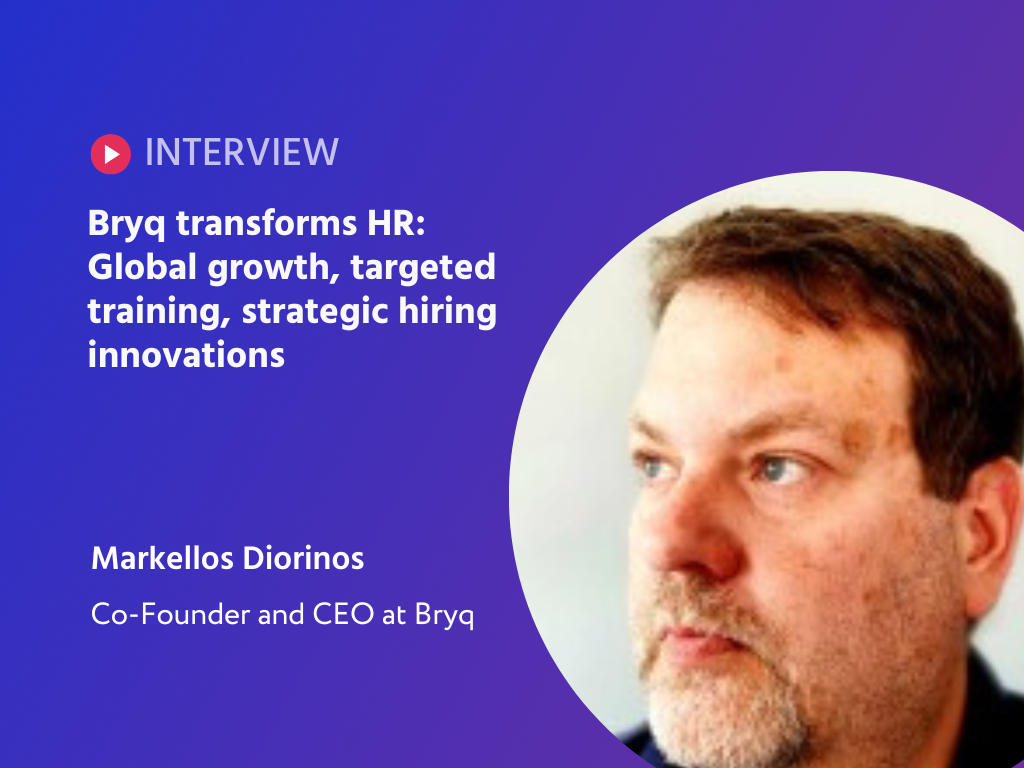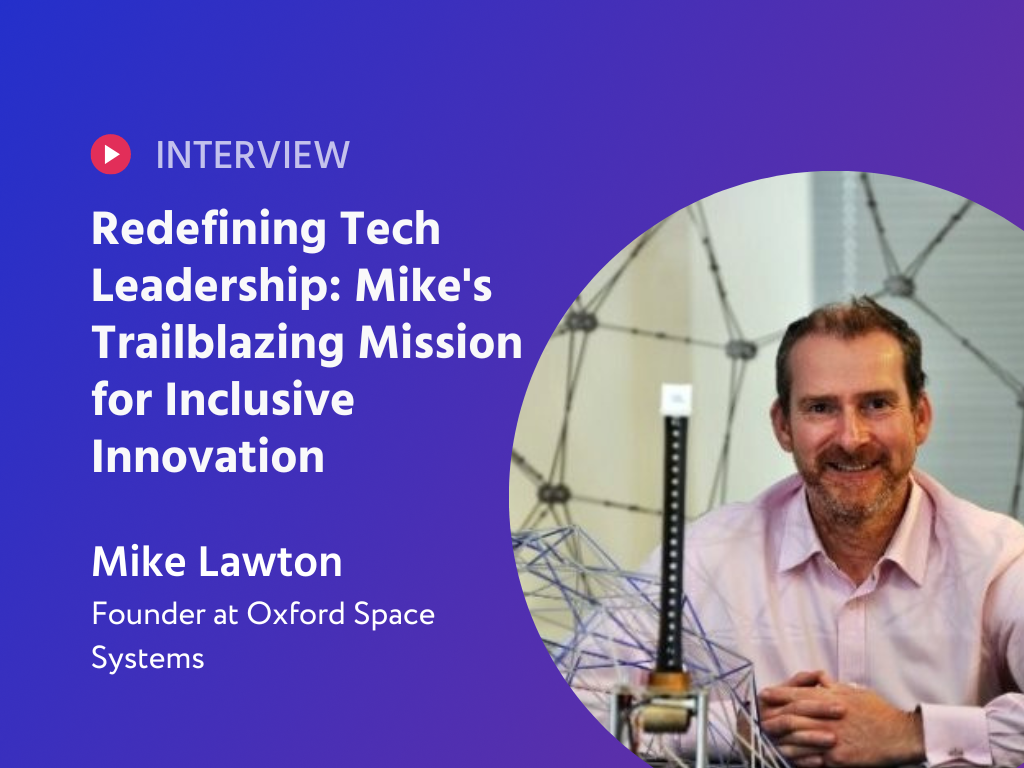Welcome to "The Bright Founders Talk," a special edition of our podcast where we dive into the innovative minds shaping today's technological landscape. In this episode, we are thrilled to have Ingo Ruebe, the founder of KILT Protocol, as our esteemed guest.
With a rich background in media and publishing, Ingo brings a wealth of knowledge and experience to our discussion. From exploring his unique productivity hacks to delving into his aspirations of flying helicopters, Ingo offers an intriguing glimpse into his life and work.
We also touch upon the challenges and rewards of starting a company in Germany, shedding light on the entrepreneurial climate in one of Europe's most dynamic countries. Join us as we uncover the driving forces behind Ingo's journey, his visionary work with KILT Protocol, and the adventures that lie ahead. This interview promises to be an enlightening journey through the intersections of technology, business, and personal growth.
Ingo's Insight: Productivity, Aspirations, and the Berlin Buzz
Let's jump right into the thick of it. Ingo, a man who juggles media and publishing like a pro, shares his rather unconventional productivity hack: driving to work. Yes, you heard it right. While the world raves about working in pajamas, Ingo prefers the road less traveled - or rather, the one well-driven. He quips, "If I'm not under pressure and want to be productive, I just go to work." It's a refreshing take in our home-office-obsessed era. Ingo's method is a testament to the idea that sometimes, the simplest solutions are parked right in our driveways.
If I'm not under pressure and want to be productive, I just go to work
Now, let's soar into Ingo's aspirations, quite literally. He's got his eyes on the skies with a dream of helicopter flying. This isn't just a whimsical fancy; it's been on his bucket list for two decades. "Helicopters are just so cool," he says with a spark of excitement that's infectious. It's not about escaping the mundane for Ingo; it's about embracing a challenge, feeling the thrill of the rotor blades, and maybe finding a nifty way to skip the morning traffic.
Diving into the professional realm, Ingo paints a vivid picture of starting a business in the vibrant heart of Germany - Berlin. He doesn't sugarcoat it; there are bureaucratic hurdles and a maze of regulations. But the city, with its eclectic mix of young, international minds, is a fertile ground for innovation. "Berlin sells itself," he states, highlighting the city's linguistic flexibility and cultural diversity. It's a hotspot where English is a universal passcode, and the energy is as palpable as the potential. Ingo's take is clear: "It's quite good to be here."
Navigating Passion and Innovation: Ingo’s Journey from Computer Whiz to Industry Shaper
Ingo's journey into the world of computer science began with a gift from his mother at the tender age of 12 — a computer that sparked a lifelong passion. Reflecting on his decision to pursue computer science, Ingo shares, "You should really like what you study because if you like doing your things, you don't notice that you work." Despite the conventional wisdom suggesting medicine or dentistry as more lucrative paths, Ingo followed his fascination with technology, undeterred by skeptics who doubted the future of computer science. His narrative is not just about the decisions he made but about embracing a path fueled by genuine interest, a theme that resonates throughout his career.
You should really like what you study because if you like doing your things, you don't notice that you work
Ingo's story takes a captivating turn as he recounts his aspirations to become a professor and his bold move to secure a PhD position in New York. With determination and a bit of audacity, he walked into New York University, leading to an offer to join their program without tuition fees. However, his plans were thwarted by a surprising rejection from a German organization that failed to see the potential in computer science. "Computer science doesn't have any future," they claimed. This pivotal moment, while a setback, showcases Ingo's resilience and the somewhat unpredictable nature of chasing one's dreams.
Ingo attributes his success to a strong-minded approach, prioritizing enjoyment and impact over monetary gain. "I always tried to do things which I like," he asserts, emphasizing the importance of passion and attitude in work. His career trajectory reflects this philosophy, marked by a willingness to seize opportunities and explore various roles, from Customer Care Officer to Operations Director. Ingo's first venture, a start-up in medical informatics, exemplifies his entrepreneurial spirit and ability to adapt, eventually leading him to the publishing industry during a transformative era from print to digital. His story is a testament to the power of following one's passion, staying adaptable, and making an impact wherever one goes.
Ingo's Odyssey: From Computer Science Enthusiast to Blockchain Visionary
Ingo, with a twinkle in his eye and an air of nostalgia, recalls his early days, diving into the realms of computer science. He reflects on a time when the digital revolution was just a whisper on the horizon. "I think the next big thing is about to happen to publishing companies because now AI comes in," he remarks, hinting at the seismic shifts he's witnessed and the ones still on the horizon. Ingo's journey is not just a tale of embracing technology but of foreseeing its trajectory, riding the wave from the birth of digitalization to the cusp of an AI-driven future. He sees both the promise and the peril, noting, "AI can become faster but also kick you out of the market."
I think the next big thing is about to happen to publishing companies because now AI comes in
Ingo's career is a patchwork of experiences, each piece a lesson in management, politics, and the nuances of human behavior. "Finding out the reasons behind the behavior of people is something that you can only learn in a huge company," he muses, reflecting on his time navigating the complex corridors of large corporations. It's this deep understanding of dynamics, both technical and human, that has equipped him to adapt and thrive in varying environments, from the bureaucratic labyrinths of Greece to the fast-paced tech hubs of Europe.
As the conversation shifts to his current endeavors, Ingo's eyes light up with the same fervor that likely sparked his first computer at age 12. He recounts the inception of Bot Labs, born from a vision at South by Southwest and nurtured by the freedom and backing of a supportive board. "We still work a lot on KILT because we feel very much obliged to bring it forward," he shares, revealing his enduring commitment to the projects he believes in. Ingo's narrative is a powerful reminder that the path of innovation is not just about the technology you create but the passion and purpose that drive it.
Ingo's story is a vibrant chronicle of a man who not only adapted to the changing tides of technology but also anticipated and shaped them. His journey from a young computer enthusiast to a blockchain visionary is peppered with insights, challenges, and a relentless pursuit of what he loves. As he aptly puts it, "I always tried to do things which I like," a mantra that has evidently steered his path through the fascinating and ever-evolving landscape of technology.
Ingo's Tech Altruism: Unleashing Innovation Through Open Source and Digital Identity
Ingo, with an air of casual expertise, delves into his history of propelling open-source projects, starting with Thunder. He describes it as a segment of Drupal tailored specifically for online publications. "If you have ten publishers working with the same system, they all own it in some way or form," he explains, highlighting the communal benefits of shared innovation. The strategy isn't just about cost-saving; it's about cultivating a collective of minds to push technology forward, faster, and more securely. It's a testament to his belief that "you don't compete with your infrastructure, you compete with your products." Ingo sees software as a tool, not a battleground, asserting, "It's much safer, much more creative, and starts being a collaborative action."
If you have ten publishers working with the same system, they all own it in some way or form
Shifting gears to digital identity, Ingo outlines the critical need for a decentralized approach, contrasting the robust, individualized nature of physical identities with the precariousness of our digital footprints, often monopolized by a few tech giants. He paints a picture of a future where digital identities are as unique and sovereign as our faces, controlled and curated by the individual, not the corporation. "This produces a lot of power on their side but also makes the population lose a lot of their sovereignty," he notes, underscoring the risks of centralized digital identities. His work with KILT and the broader decentralized identity community is an effort to reclaim that sovereignty, ensuring our digital selves are as untouchable and unequivocal as our real-world identities.
Ingo's vision is expansive, seeing beyond the immediate implications of his work to the broader societal impact. He's not just building technology; he's sculpting the infrastructure of trust and collaboration for the future. Whether discussing open-source publishing platforms or the intricacies of digital identity, his underlying message is clear: technology should empower, not overpower. As he ponders the complexities of giants like Microsoft, it's evident that Ingo's curiosity and drive stem from a deep-seated desire to understand and improve the mechanisms that shape our world. His parting thought, mulling over the enigma of Microsoft's decision-making, is a fitting reflection of his inquisitive and forward-thinking nature: "I don't fully understand their decision-making process, and that would be very insightful." It's this blend of humility and ambition that makes Ingo's journey not just a tale of tech but a roadmap for thoughtful innovation.





